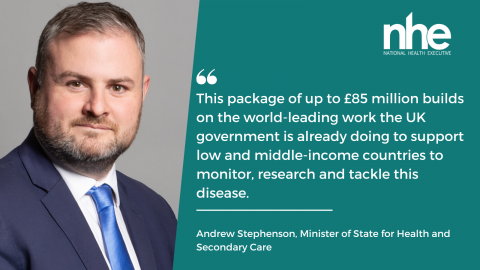In the latest bid to tackle the growing problem of antimicrobial resistance (AMR), the UK Government has announced its intention to invest up to £85m in global initiatives to improve treatment access, strengthen surveillance, and bridge international collaboration.
The details of the investment are expected to set out in an event hosted by the Royal Society today.
Details include:
- Up to £50m to improve access to essential antimicrobial drugs – this will be done in partnership with low and middle-income countries
- Up to £25m to strengthen surveillance systems in Caribbean countries and territories – this will be done through regional partners like the Caribbean Public Health Agency and the Pan American Health Organisation
- Up to £10m to establish a Global Independent Scientific Panel for AMR

“Following my time as Health Secretary, I was deeply concerned about the threat of antimicrobial resistance – not just to the UK but to the world,” said the chancellor, Jeremy Hunt.
He continued: “The Covid-19 pandemic was conclusive proof that health emergencies don’t respect borders.
“That’s why I’m proud that the UK continues to play a pivotal role in bringing countries together to tackle emerging global health threats, and this significant funding package shows our commitment to stamping out antimicrobial resistance.”
The government highlights the fact that, in 2019, 4.95 million deaths were associated with drug-resistant bacterial infections across the world.
Experts estimate this could rise to 10 million by 2050, which would cost the global economy approximately 100 trillion US dollars.
The Organisation for Economic Cooperation and Development, in fact, has said that if sufficient action is not taken the cost of treating resistant infections could compare to having a Covid pandemic every five years.
Image credit: iStock



















